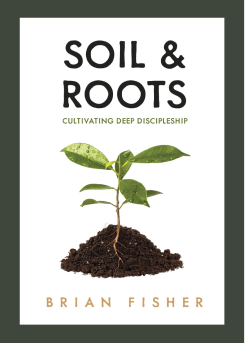One of These Things is Not Like the Other
When is a disciple not like a disciple? When is a church not like a church?
Hi everyone. Thanks and welcome to all of our new subscribers. Great to have you with us!
We’re in the middle of a multi-post exploration of “The Great Omission” and contrasting that with what we call “deep discipleship.” If you’re new or want to review some of the earlier posts related to our journey, jump back here and move ahead article by article at your own pace.
Today we’re going to start mining for some ideas getting in the way of our discipleship of which we’re not normally conscious, and how they impact what we assume about “church.” So let’s do a quick summary of what we’ve explored so far as we turn a corner:
Cliffs Notes Review
Theologian and philosopher Dallas Willard claimed that modern Christianity can be described as “The Great Omission.” We talk a lot about making disciples but struggle to do so.
A disciple is an apprentice of Jesus for the purpose of becoming more like Him over time. It’s a journey of character formation, now often referred to as “spiritual formation.” So the journey of becoming a disciple is one in which our hearts are progressively formed to think like Jesus thinks, act like He acts, relate like He relates, and love like He loves.
We become more like Jesus as we experience Him, and He invites us to experience Him in a myriad of ways. The result is a person of increasing depth. Deep disciples see and experience people and the world differently. They listen to hearts and not just words. When they do speak and act, their words and behaviors may not align with what we normally associate with a mature Christian.
A deep person is becoming increasingly “awake” or “attuned” to the powerful and governing assumptions that drive our hearts and cultures.
We call these “ideas.” Ideas are the principles, conclusions, and assumptions from which we operate, but of which we’re generally unaware. They aren’t so much intellectual statements as they are experienced realities. I’ve provided several examples of Ideas in the Air (culture) and Ideas in the Soil (our hearts) in the last several posts for reference. Admittedly, it takes a while to get used to exploring spiritual and cultural formation through the lens of ideas.
Ideas in the Soil sit quietly at the bedrock of our hearts and are often shockingly different from our belief statements and doctrines.
Using this vernacular, deep discipleship may be defined as the ongoing transformation of dark ideas to light ideas in hearts and cultures. We grow to better experience and embrace God’s ideas, and we join with Him as He transforms idea after idea from dark to light, as His kingdom continues to come.
Therefore, as Richard Foster insightfully noted, the world doesn’t need more intelligent or gifted people, it needs people of depth.
The lack of deep discipleship in the modern era has debilitating consequences on individuals, families, and cultures.
The Great Omission may well be the root of bitter and harmful fruit present in many societies.
We often feel it personally as a quiet sense of disconnection, disintegration, or loneliness. We may ask ourselves, “Is this all there is to the Christian life?”
The revival for which many seek, the desire for multiplication, and the efforts at cultural and social reformation are all good and right. However, they may be struggling not because of a lack of programs, prayers, passion, intelligence, organizations, scripts, or money, but because of a lack of deep people.
This type of depth normally takes years to develop and often involves trials, suffering, pain, and hardship - things we moderns do whatever we can to avoid or numb.
What if Church isn’t a Church?
The phrase “The Great Omission” may be offensive to some people. After all, to suggest that modern Christianity has basically failed to live out The Great Commission is a slight to church institutions and movements worldwide.
Certainly, the Holy Spirit works and moves as He wishes, and ministry and transformations are happening.
Though that wasn’t Willard’s criticism. As we’re going to explore coming up, the formation of someone’s heart (or their spirit or character) is a holistic, comprehensive, long-term, messy, transparent journey in community.
In all of Willard’s travels and conversations, he had seen little evidence of a church or institution that had a program, ministry, community, or intentional experience designed to help form someone to be kinder, gentler, more self-controlled, more at peace, less anxious, less angry, and more relationally shrewd once they came into the kingdom.
That’s probably why he wrote that genuine discipleship looks a lot more like Alcoholics Anonymous than what most of us experience in Christian environments today. Again, much of modern Christianity is focused on assimilating correct information, which may or may not contribute to character formation.
That begs a question that a pastor reminded me of last week: if a genuine church is an intimate community designed to help us become more like Jesus, how many of our churches are…well…churches? Perhaps we come together for an hour to hear a sermon and sing a few hymns or worship choruses, but is that “church?”
I’ve written elsewhere that church leadership’s use of Hebrews 10:23-25 to guilt people into coming to their weekend event presupposes that whatever happens at that event is what the writer of Hebrews intended. I’m not so sure.
From my little perch, I’ve yet to find evidence that Willard was wrong in his assessment. I interact with a fair number of pastors and church leaders, and none of them has ever remarked, “Yeah, we have this discipleship thing down. We have so many people running around who love like Jesus, you’d think heaven was here on earth.” To a one, they share how difficult making disciples is in the modern era.
More than one of these leaders has expressed deep concern that what they view as a shallow, transactional version of Christianity has been exported from the West to the rest of the world.
The Three Primary Problems
So if you agree with this assessment of modern Christianity (and you may not, but thanks for reading anyhow), it begs the question, “Why?” Why is forming genuine disciples so elusive in the current era?
Over the next several posts, I’m going to share at least Three Primary Problems that are subtly but surely making our spiritual journeys that much more difficult. I’ll introduce them here: The Discipleship Dilemma, The Formation Gap, and The Forgotten Kingdom.
The Discipleship Dilemma
We will struggle to become more like Jesus if we don’t know two people very well: Jesus and ourselves. It’s a concept called “double knowledge.” However, in many communities today, the idea of spending the necessary time and energy to explore our individual hearts and stories is ignored, derided, or considered sinful.
Ironically, self-knowledge is assumed in every other intentionally formative environment.
When I was a kid, I had a talent for the piano, though I also wanted to become a professional singer. After years of taking lessons, singing in various groups, and working on my voice and not getting very far, my long-suffering mother finally remarked, “Brian, you just can’t sing very well. Stop trying to be someone you’re not.” She was right. A little self-knowledge goes a long way.
Marriage is arguably the most formative human relationship on the planet. Any pre-marital counseling worth its salt dives into the stories of the soon-to-be husband and wife. Ask anyone who married someone with little self-knowledge and you’ll find a miserable spouse. The long-term journey of becoming one in marriage requires each person to know who they are as individuals in order to give themselves to the other.
You are a hand-crafted image bearer of the divine artist. You are worth knowing and exploring. And it’s an essential and wonderful part of our spiritual journeys.
The Formation Gap
To be formed like someone else requires five key elements to be intentionally and abundantly present: time, habit, community, intimacy, and instruction.
The Olympics just wrapped up, and these five elements were on extraordinary display. If your daughter wants to become a professional gymnast, she will intentionally become part of an environment consisting of substantial time (early morning practices at the gym each week), specific habits (untold numbers of exercises and workout routines), community (with other gymnasts to build teamwork and accountability), intimacy (rock-solid trust built with team members and coaches over time) and instruction. If your daughter wants to be formed more like Gabby Douglas or Simone Biles, she’s about to embark on a five-element journey.
The same five elements are present in New Testament discipleship. Jesus embodied and manifested all five as He formed His followers to be more like Him.
However, many of us today live in the Formation Gap. Our institutions and communities may not intend to form us, or our frantic lives leave us with little bandwidth or energy to be a part of spiritually formative gatherings. We may experience one or two elements, but few of us are blessed to be a part of five-element communities.
The Forgotten Kingdom
If you were to line up ten people and ask them what the Kingdom of God is, chances are you’d hear ten different answers. I’ve done it. Some people think the kingdom is heaven. Others think it’s a spiritual reality with no impact on the physical or present world. Many believe the kingdom is the worldwide body of believers (the church).
Yet the Gospel of the Kingdom is the primary theme of the New Testament and hinted at throughout the Old. Often, the word “Gospel” is paired with “of the Kingdom” in the Bible.
So what gives? Why is the primary idea of the New Testament a confusing and cloudy concept to many of us? And when we say “Gospel,” what do we mean?
As we’ll explore, the Gospel of the Kingdom is all about purpose: Jesus’ and ours. If we don’t grasp the breadth and depth of the kingdom, we’ll struggle to become more like its king.
Nothin’ but Good News
These problems haven’t characterized every age, but they do ours.
Many people want to become more like Jesus but don’t feel they have permission or guidance to do the deep work of mining their own hearts. Millions want to be disciples but lack the long-term, intentionally formative communities for which we’re designed. And if we don’t understand Jesus’ cosmic purpose and how that purpose was catalyzed through the cross and resurrection as He incepted His kingdom, we’ll struggle to determine how our stories fit into the grand narrative God has woven.
Here’s the great news: if we come together with Jesus and others to solve each of these problems, genuine discipleship is likely to explode.
That’s why I continue to write and why, I hope, you continue to read.
Duc In Altum!
Brian
This Week on the Soil & Roots Podcast
Over the years, we’ve mentioned how the most supple, malleable time in a person’s life is childhood. The heart is the most impressionable and formable when it’s new. So why do we hear so little about spiritual formation in children? Why does so much of the modern discipleship/spiritual formation movement focus on adults?
Author and innovator Emily Riffe joins the podcast today to explore these and other questions. She draws heavily on the work and thinking of British educational reformer Charlotte Mason, who held to a very high view of the personhood of the child and the potential of human beings as image-bearers of God. What role do the home, nature, creation, culture, and self-knowledge play in the spiritual formation of our children?
It’s a fascinating, wide-ranging, and at times surprising discussion about how the West often misses key elements in child formation, and how the Church can lead the way to restoring a holistic, loving approach. And check out Emily’s book, Raising Wildflowers, which is all about educating kids with character as the primary focus.
Watch here:
Buy the Book!
If you’re interested in exploring deep discipleship and Christian spiritual formation, the Soil & Roots book is a wonderful primer. Check it out and make sure to leave a review! Available in softcover and Kindle.
Why Is There No Option for a Paid Subscription?
I write on behalf of Soil & Roots, a Christian non-profit organization that works to cultivate deep discipleship through its content and through supporting small formative communities called Greenhouses. As such, our efforts are funded through donations and Substack doesn’t offer a donation option. If you wish to support the writing and the work of Soil & Roots, just visit our website and make your monthly, tax-deductible contribution there. Thanks!
Where Else Can I Find You?
Website (lots of info on Greenhouses, plus our blog and podcast library)
Spotify (complete podcast library)
Facebook (great community of folks venturing into deep disciples plus the obligatory memes)
YouTube (complete podcast library, including original audio episodes)
Instagram (I don’t really get the appeal of IG, but there you go)
Email me at fish@soilandroots.org or leave a comment on Substack.








